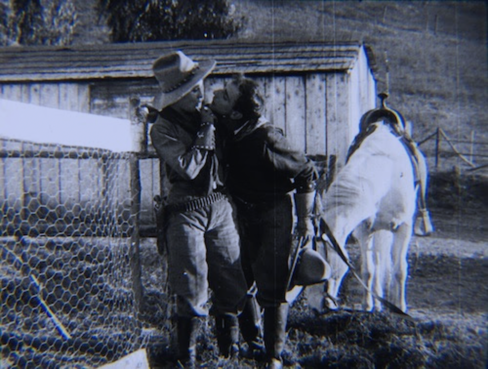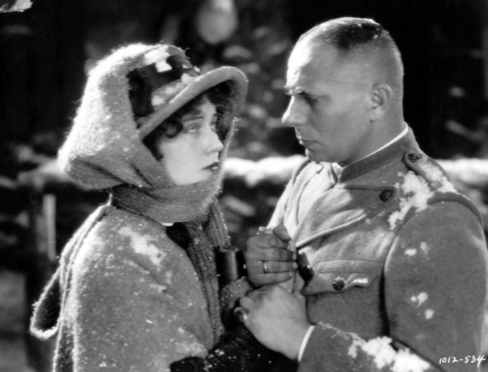 On the 5th and 6th of November the Kennington Bioscope will present its sixth Silent Film Festival, with the support of The Cinema Museum, the British Silent Film Festival and the BFI. All silent films will have live accompaniment by our highly acclaimed team of musicians. The line up below is to be confirmed and subject to alterations.
On the 5th and 6th of November the Kennington Bioscope will present its sixth Silent Film Festival, with the support of The Cinema Museum, the British Silent Film Festival and the BFI. All silent films will have live accompaniment by our highly acclaimed team of musicians. The line up below is to be confirmed and subject to alterations.
The Cinema Museum will open its doors at 09.00.
10.00 Widecombe Fair (1928)
Directed by Norman Walker with William Freshman as The Lover, Marguerite Allan as The Daughter, Wyndham Standing as The Squire, Violet Hopson as The Widow and Moore Marriott as Uncle Tom Cobleigh. The cinematography is by Claude Friese-Green and it was adapted from a 1913 novel by Eden Phillpotts, loosely based on the popular folk song Widecombe Fair. This comedy drama set in the beautiful Devon countryside tells of farming folk, an impecunious squire and the efforts made by family and good neighbours to save his farm. The beastly bailiff may be on the doorstep and the auctioneer hovering. Piano accompaniment by Colin Sell.
11.45 BFI 35mm Silents From Bologna
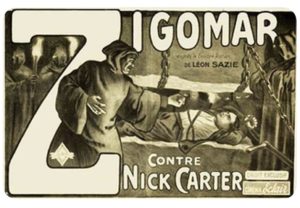 As per the heading, a recent BFI presentation at Bologna headed by Zigomar, peau d’anguille (France 1913) directed by Victorin-Hippolyte Jasset. Léon Sazie’s adventure serial Zigomar appeared in Paris-based newspaper Le Matin from 7 December 1909 to 22 May 1910. After this daily publication, it was also published as a brochure by the publisher Ferenczi, with catchy cover art drawn by Georges Vallée. Appearing every Wednesday at the newsstand, Sazie’s Zigomar became one of the most popular serials of this period and this popularity caused the appearance of the similar picaresque serials such as Fantômas by Marcel Allain and Pierre Souvestre. Preceding Zigomar will be The Ingenious Soubrette (France 1902) and Ali Baba et les Quarante Voleurs (France 1902), transferred from hand-coloured nitrate, both directed by Ferdinand Zecca. Piano accompaniment by John Sweeney.
As per the heading, a recent BFI presentation at Bologna headed by Zigomar, peau d’anguille (France 1913) directed by Victorin-Hippolyte Jasset. Léon Sazie’s adventure serial Zigomar appeared in Paris-based newspaper Le Matin from 7 December 1909 to 22 May 1910. After this daily publication, it was also published as a brochure by the publisher Ferenczi, with catchy cover art drawn by Georges Vallée. Appearing every Wednesday at the newsstand, Sazie’s Zigomar became one of the most popular serials of this period and this popularity caused the appearance of the similar picaresque serials such as Fantômas by Marcel Allain and Pierre Souvestre. Preceding Zigomar will be The Ingenious Soubrette (France 1902) and Ali Baba et les Quarante Voleurs (France 1902), transferred from hand-coloured nitrate, both directed by Ferdinand Zecca. Piano accompaniment by John Sweeney.
12.50 Lunch
13.50 The Institute of Amateur Photographers’ Award-Winners’ Film Programme of 1935-39
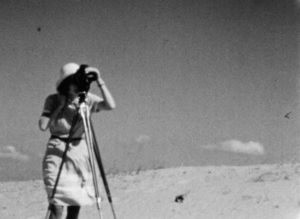 In 1935, during the formative years of amateur filmmaking in Britain, the Institute of Amateur Cinematographers (IAC) sent out a package of seven award-winning films on a ‘World Tour’. Arranged in conjunction with cine clubs across the globe (including Australia, Portugal, India, and Japan), this tour represented the breadth of filmmaking styles and genres open to the amateur filmmaker. To mark the 90th anniversary of the IAC, this specially curated programme features new 2k scans of the tour films, recently digitised at the East Anglian Film Archive and Filmoteca de Catalunya as part of the research project ‘International Amateur Cinema Between the Wars, 1918-39’. Special thanks to Filmoteca de Catalunya for their permission to screen Memmortigo?. Piano accompaniment by John Sweeney.
In 1935, during the formative years of amateur filmmaking in Britain, the Institute of Amateur Cinematographers (IAC) sent out a package of seven award-winning films on a ‘World Tour’. Arranged in conjunction with cine clubs across the globe (including Australia, Portugal, India, and Japan), this tour represented the breadth of filmmaking styles and genres open to the amateur filmmaker. To mark the 90th anniversary of the IAC, this specially curated programme features new 2k scans of the tour films, recently digitised at the East Anglian Film Archive and Filmoteca de Catalunya as part of the research project ‘International Amateur Cinema Between the Wars, 1918-39’. Special thanks to Filmoteca de Catalunya for their permission to screen Memmortigo?. Piano accompaniment by John Sweeney.
15.40 Bright Eyes (1929)
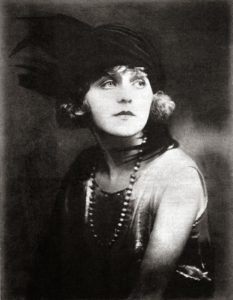 A British-Austrian production – also known as Champagner – directed by Géza von Bolváry and featuring Betty Balfour, Jack Trevor, and Fritz Greiner. Jenny (Balfour) works in the kitchen of a luxurious hotel. She is in love with Jean, the charming headwaiter, but Jean has his eyes on Lola, the hotel dancer, who is kept by a senile millionaire. Described variously as `the British Mary Pickford’ and `Britain’s Queen of Happiness’, Betty Balfour was best known to audiences for her Squibs series of films. Piano accompaniment by Lillian Henley.
A British-Austrian production – also known as Champagner – directed by Géza von Bolváry and featuring Betty Balfour, Jack Trevor, and Fritz Greiner. Jenny (Balfour) works in the kitchen of a luxurious hotel. She is in love with Jean, the charming headwaiter, but Jean has his eyes on Lola, the hotel dancer, who is kept by a senile millionaire. Described variously as `the British Mary Pickford’ and `Britain’s Queen of Happiness’, Betty Balfour was best known to audiences for her Squibs series of films. Piano accompaniment by Lillian Henley.
17.25 Cinema’s First Nasty Women – Gender Adventures
Shorts directed by James Young Deer, Sidney Olcott, Jay Hunt, and Richard Wallace with Lillian St. Cyr (Red Wing), Gene Gauntier, Texas Guinan and Katherine Grant. Gender Adventures – From the Old West to the (now not so) distant future, women take centre stage and drive the action in this programme of adventures. Produced from 1910 to 1926, these rarely-seen silent films showcase actresses cross-dressing in adventure and comedy, assuming a range of identities that gleefully dismantle traditional gender norms and sexual constraints. On the Western frontier, young women disguise themselves as boys to seek their fortune; other films show the rambunctious gun-toting femininity cultivated out West, while we close the programme with a hilarious sex role-reversal comedy from the Hal Roach Studios. Piano accompaniment by Colin Sell.
19.00 Dinner
20.00 The Wedding March (1928) – Photoplay 35mm print
A bittersweet look back at pre-World War I Vienna, made by its native son, Erich Von Stroheim. The Wedding March is a tour-de-force in its modern acting, engaging story and sure direction from the top director-screenwriter of the 20th century. Von Stroheim, who later acted in Sunset Boulevard, La Grand Illusion and other classics, took acting roles in only three of his own films, of which this is one. Prince Nikki, of The Wedding March is his most complete and complex character, a man caught between cynicism and romance, between true love and physical desire. Fay Wray, as Mitzi, gives the best performance of her career, five years before her best-remembered role in King Kong. The story – a member of royalty in love with a poor commoner – had been tried before but has such twists, insights, and realism that the Russian film school, at the time, used The Wedding March as the template screenplay for its students as a model of perfection. The original release suffered commercially from the emerging competition of talking pictures but it has since gained appreciation as not just a superb example of silent cinema but one of the best films of all time. Piano accompaniment by Cyrus Garbysch.
In addition to lunch and dinner breaks there will be short intervals between each programme.
Details of the Sunday programme here.
Tickets & Pricing
Weekend Ticket £30 / One Day £18 / Afternoon and evening pass £12 / Evening pass £6. You can also book dinner (£9) on both days at the Cafe Jamyang, next door to the Museum. Tickets and dinner bookable here.
Important note about meals: If you are ordering a meal please do so before Monday 24 October. The cafe now charges us a hire fee, and if we have not received enough bookings for meals by that date we will have to cancel the hire of the cafe and issue a refund for any meals that have been booked.

